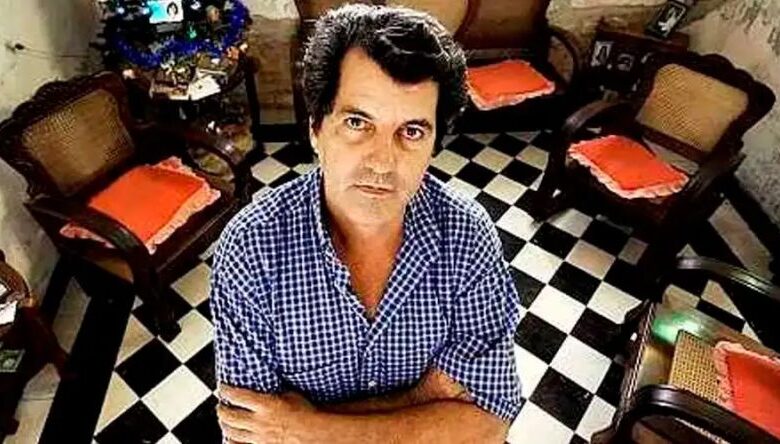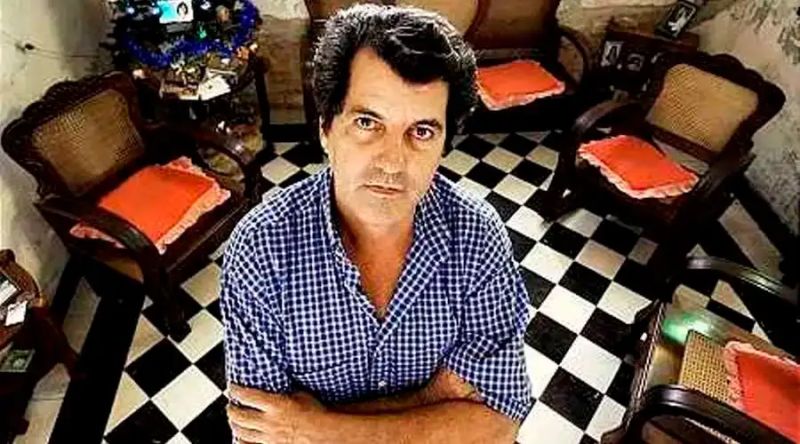Report vindicates Cuba movement’s claim that Castro regime murdered their leader

 Oswaldo Payá Sardiñas. / Credit: MCL
Oswaldo Payá Sardiñas. / Credit: MCL ACI Prensa Staff, Jun 15, 2023 / 17:00 pm (CNA).
The national coordinator of the Christian Liberation Movement (MCL) in Cuba, Eduardo Cardet, said that the report by the Inter-American Commission on Human Rights (IACHR) on the deaths of Oswaldo Payá (who founded the MCL) and Harold Cepero is “duly documented” and supports the accusations that both “were victims of a state assassination,” as the MCL had claimed from the very beginning.
On June 12, the IACHR published the report on the deaths of the two Catholic dissidents who died on July 22, 2012, after the car they were riding in crashed. They were heading to eastern Cuba to promote El Camino del Pueblo (The People’s Way), Payá’s initiative to unite the peaceful opposition.
The vehicle was driven by Spanish political activist Ángel Carromero, and Swedish citizen Aron Modig was also traveling with them. The regime’s version is that it was a traffic accident. However, from the outset the MCL showed a series of text messages in which the dissidents said that they were rammed by a car with government license plates.
The regime blamed Carromero for the deaths and convicted him in a controversial trial. Months later he was extradited to Spain, where he regained his freedom.
Given the situation, in April 2013 the Robert F. Kennedy Human Rights Center filed a petition with the IACHR on behalf of the MCL and Payá’s family, alleging Cuba’s “international responsibility” for the deaths of both dissidents, which was done with impunity.
After more than 10 years of investigation and analyzing the evidence presented, the agency of the Organization of American States (OAS) issued its report stating that there are “multiple pieces of evidence related to the participation of state agents in the death of Messrs. Payá and Cepero.”
The report also states that before their deaths, both dissidents were victims of “multiple acts of violence, harassment, and threats” by the government within “a context of violence against political dissidents and human rights defenders.”
The IACHR notes that the Cuban government did not respond to inquiries during the investigation.
In a statement to ACI Prensa, CNA’s Spanish-language news partner, Cardet pointed out that the IACHR’s pronouncement on the case is “an act of justice, very consistent with the truth and with the data that has been provided” from the moment this tragic event occurred, which reinforces what we have been saying during all these years: that the regime was directly responsible for the death of Oswaldo and Harold.”
Cardet also stressed that “it’s relevant that a body of this level would make a pronouncement,” especially when in a dictatorial regime like Cuba’s “the path of justice is plagued with many obstacles.”
In its report, the IACHR makes a series of recommendations to the Cuban government, such as reparation to the victims of the human rights violations indicated in the report, disseminating the document in the media, and establishing who was responsible for the deaths, among others.
However, Cardet believes that, following “its own nature,” the Havana regime “will not comply with the recommendations.”
Despite this, he said, “the essential thing is that the commission was able to gather the entire accumulation of evidence that has been offered both by the family and by the members of the MCL and other people of goodwill.”
Cardet emphasized that the IACHR report “marks a before and after in regards to the international impact of this event.”
He therefore reiterated MCL’s request that the governments of the United States, Spain, and Sweden declassify the information they have, “to hold the Havana regime accountable for this crime” and also to judge those responsible accordingly.
Cardet, a medical doctor, has himself been a victim of the communist regime’s repression.
On Nov. 30, 2016, after he had criticized in an interview with a Spanish radio station the legacy of Fidel Castro, who had died Nov. 25 of that year, he was violently beaten outside his home in Velasco in front of family and neighbors by government agents and accused of disturbing the peace.
After a sham trial, he was sentenced on May 18, 2017, to three years in prison on the charge of attacking a state official. He served two and a half years of his sentence when he was released on probation in early May 2019.
This story was first published by ACI Prensa, CNA’s Spanish-language news partner. It has been translated and adapted by CNA.




